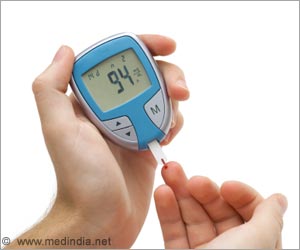Weight loss and losing fat can help in controlling atherosclerosis. Therefore, research suggests overweight and obese people to enroll in weight loss programs.

Facts about Obesity and Atherosclerosis
- More than one-third of American adults are overweight, which makes it nearly 78.6 million adults.
- Obesity can lead to a number of cardiovascular diseases including atherosclerosis.
- In 2008, the annual cost of obesity was 145 million US $.
- An obese person spends 1429$ more on medical expen ses than a person with normal weight.
- Early markers of atherosclerosis and diabetes have been identified among obese children.
To understand if this was true, scientists Kuat Oshakbayev and colleagues studied the influence of weight loss on the degree of atherosclerosis. They performed the study on 97 people after dividing them into two groups, one group followed a non-drug weight loss program while the other group was on conventional drugs.
The weight loss program included:
- Calorie intake of 100-150Kcal/day
- Consumption of fat-free vegetables
- Salt diet
- Physical exercises of at least 10,000 steps per day
The other group under study which was used as the control group continued with their conventional drug therapy,
- Hypoglycemic
- Antihypertensive
- Anti-inflammatory
- Other symptomatic therapy
Study Group Reactions to the Weight Loss Program
There were a series of emotional and physical roadblocks that the study group faced and had to overcome in order to taste the benefits of the program. Such emotional upheavals would similarly be met by a more general population undertaking physical regimens to lose weight. Recognition of this aspect of a weight loss program should be highlighted to help people understand that it is completely normal to feel like it is a huge struggle initially, but it becomes less intense over time and effort.1. During the first couple of days, study group patients complained of:
- Fear due to changed diets
- Feeling of weakness
- Abdominal and lower extremities tremor
- Extreme hunger pangs
- Mild dizziness
3. 4 to 10 days after the start of the program, there was an increase in:
- Body temperature
- Erythrocyte Sedimentation Rate (ESR)
- Leukocyte rate in blood
- Blood flow to extremities improved
- Angina pectoris was absent
- Systolic output was increased
- There was a reduction in mental fatigue as well as an improvement in memory among patients with cerebral stroke and Alzheimer’s
- Tolerance to exercise improved
This research study is an important milestone in determining the effect of weight loss on atherosclerosis. It lays stress on maintaining an ideal weight which is of prime importance in thefast food world, where exercise is ignored, and consumption of high-fat food attracts greater risk for cardiovascular diseases.
An effective weight loss program, according to the study, should factor in a good exercise regimen as well as a balanced diet for good health. People with cardiovascular disease should be encouraged to exercise to reduce their risk.
The highlights of the program are:
- Low-fat diet to restrict intake of excessive fats that the body will not require
- When fats are stored for a long time in the body, it leads to aging of fat. Physical exercise to break down the “old stored fat”
- Loss of fatty mass and not lean mass
- The adipose tissue stores organic pollutants, when the fat is broken down, endogenic metabolic toxins are released. This can lead to some adverse effects during the first few days of beginning the program.
Source-Medindia















